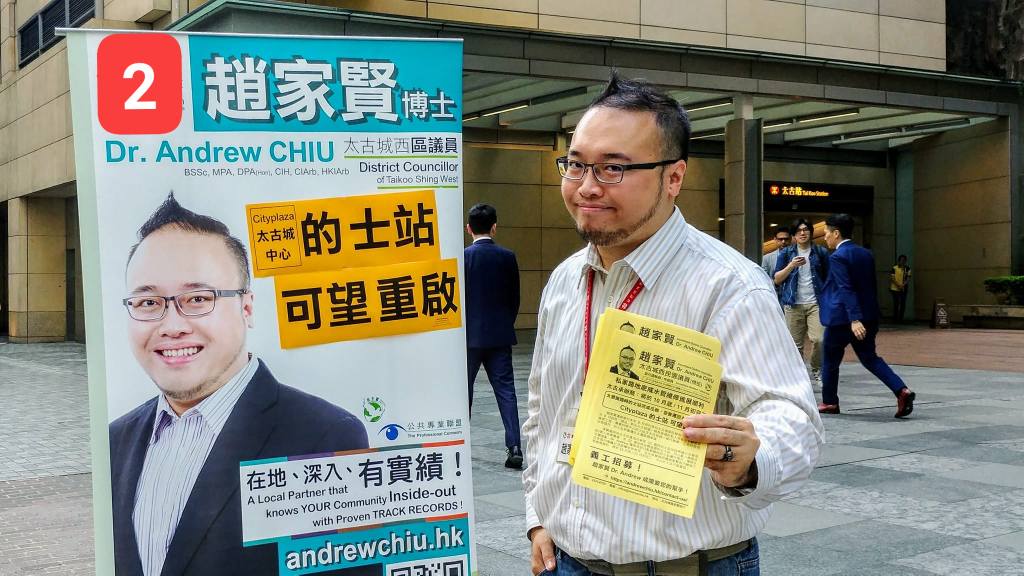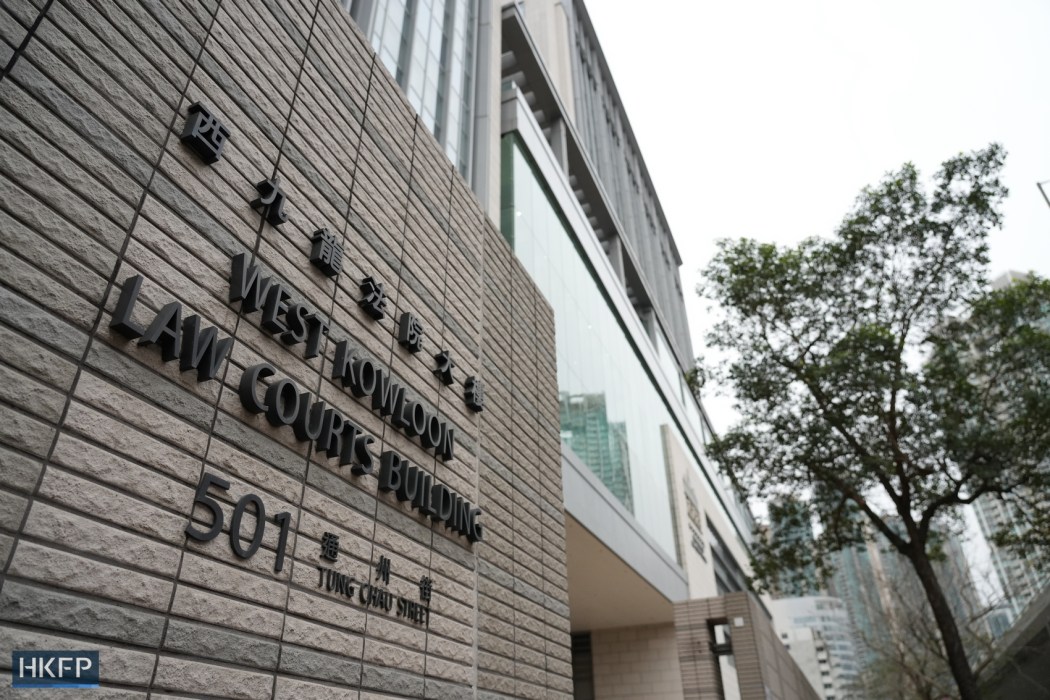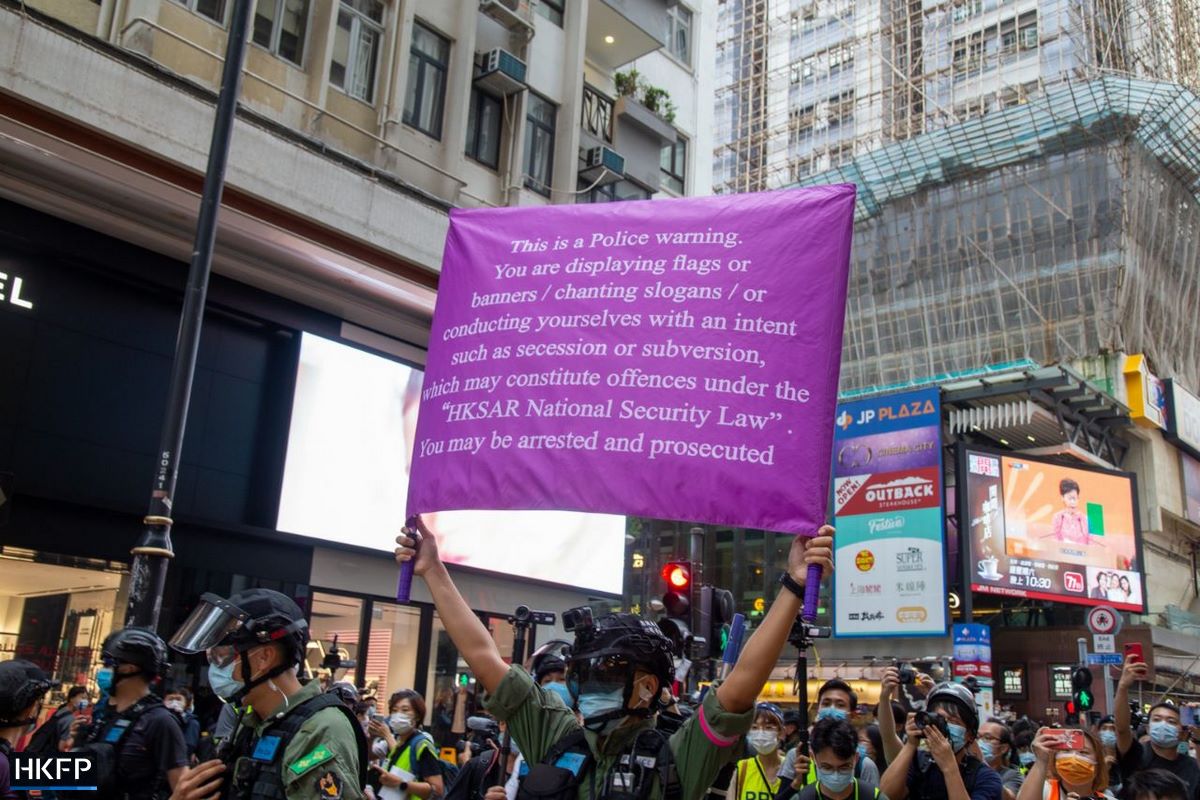A former pro-democracy district councillor has told Hong Kong’s largest national security trial that he needed to “admit my mistake” after being questioned about a Facebook post that mentioned the phrases “liberate the legislature” and “fight against tyranny.”

Andrew Chiu, who is testifying for the prosecution as one of the 47 democrats charged in the case, made the comment in court on Thursday.
Prosecutors pulled up a post on the Facebook page of Power for Democracy, a now-defunct group of which Chiu was the convener. The post, made in the lead-up to the opposition primary election at the centre of the case, called for supporters to donate and volunteer.
The post included hashtags reading “liberate the legislature” and “fight against tyranny.”
When asked by Judge Andrew Chan to explain what the phrases mean, Chiu paused for a couple of seconds before saying that the “functions of the Legislative Council could be liberated” if the democratic camp achieved a majority.
Chan also questioned him what “tyranny” was being referred to. Chiu replied that different people have different interpretations, and when pressed about whether it alluded to the Hong Kong or Beijing government, said he believed it referred to the former.

The judge then asked him if this was the Power for Democracy’s political stance at the time, to which Chiu replied: “Absolutely not.”
“Then why post these phrases here?” Chan asked.
“I have to admit my mistake,” Chiu said. “I did not do my due diligence.”
The national security trial, involving a primary election held by democrats in July 2020 ahead of a scheduled Legislative Council election, entered its 39th day on Thursday. The aim of the primary was to strategise votes, therefore helping democrats win more seats in the legislature.
Forty-seven democrats are accused of conspiring to commit subversion. The current trial concerns 16 defendants who denied the charge. Those who pleaded guilty earlier will face sentencing of up to life imprisonment after the trial concludes.
The democrats were allegedly planning to use legislative powers – had they been elected and won a majority – to indiscriminately veto bills and thus force the chief executive’s resignation and a government shutdown.

Power for Democracy was helping to organise the primary.
Chiu is the second prosecution witness to testify. The defendants’ barristers completed their cross-examination of ex-lawmaker Au Nok-hin, who also played an organising role, last week.
‘Totally crossed the line’
Among the 47 charged were veteran pro-democracy lawmakers as well as newcomers to politics. The latter consisted of young activists, some of whom were elected as district councillors during a landslide victory for pro-democracy supporters amid the 2019 protests.
Known as the “resistance camp,” the activists had more radical ideologies than the ex-lawmakers, who were from traditional pro-democracy parties and seen as more moderate.
During the afternoon, the court played footage of the full, hour-long press conference held by the resistance camp on July 15, 2020, three days after the primary election – which saw many of these younger activists receive substantial votes – was held.
Chiu said he was unaware that such a press conference was going to take place, and that Power for Democracy did not have “anything to do” with it.

Au himself had announced his withdrawal from the primary process on July 15, a day after speaking to Chiu on the phone and informing him of his decision. At this point, the Hong Kong government had already warned that the polls may violate the new Beijing-imposed national security legislation.
Chiu at the time told Au he would also withdraw, and that he would “keep an eye on the situation” for the right timing to do so.
The resistance camp’s press conference, however, made him realise he had to quit “immediately,” Chiu said.
“At the very start of the press conference, speakers said that besides for [wanting to make] the resistance camp go mainstream, they would bring their spirit of resistance into the legislative chambers and begin ‘mutual destruction’,” he added.
The term “mutual destruction” refers to defendant Benny Tai’s plan for lawmakers to indiscriminately veto government bills in the Legislative Council, bring the city to a standstill and spark a street rebellion.

The speakers’ messages, Chiu said, showed that they would not abide by two requirements set out in the nomination forms for Legislative Council candidates – upholding the Basic Law and swearing allegiance to Hong Kong.
That press conference was “very closely linked” with his decision to withdraw, Chiu said, adding that resistance camp candidates had “totally crossed the line” in relation to the national security law.
Beijing passed the legislation in June 2020 in the wake of pro-democracy protests that began the summer before. It criminalised subversion, secession, collusion with foreign forces and terrorist acts, which were broadly defined to include disruption to transport and other infrastructure.
The move gave police sweeping new powers, alarming democrats, civil society groups and trade partners, as such laws have been used broadly to silence and punish dissidents in China. However, the authorities say it has restored stability and peace to the city.
Support HKFP | Policies & Ethics | Error/typo? | Contact Us | Newsletter | Transparency & Annual Report | Apps
Help safeguard press freedom & keep HKFP free for all readers by supporting our team
























